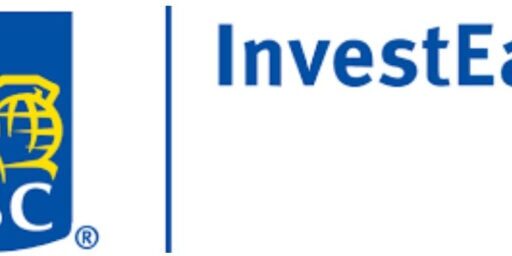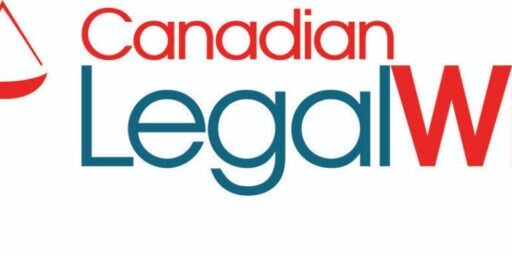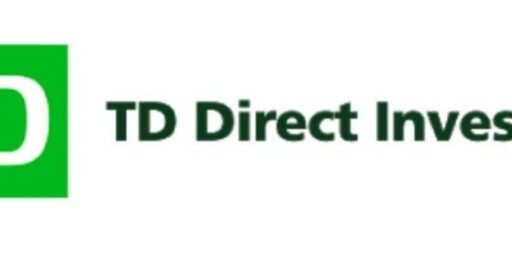Lessons from a 50 Year Old Multi-Millionaire
I got a later start on my Million Dollar Journey (MDJ) mainly because it took me until age 30 to figure out what I wanted to be when I grew up. The year I started making my first real income, I also got married. In retrospect, getting married factored majorly in to our financial success. Two travelers on the MDJ with similar goals and money views can journey faster, further, and happier. Divorce on the other hand, is one of the 5 biggest wealth-killers around.
Avoiding other big 4 wealth-killers such as annual tropical vacations, anything brand new with wheels, debt for depreciating assets, and expensive show homes and second homes, was also critical in our successful journey. You are now likely thinking “what a boring dude.” It’s not true but I’m happy it appears that way because living modestly is a key ingredient for a successful MDJ!
We reached the $1M net worth destination by age 40 and $5M by age 50. After working (we’re educators) and investing for about 20 years, working, which I still do, is now an option. Over the years, I’ve set many net worth (NW) goals and achieved them. The most recent milestone happened in 2013 – our NW increased by $1M; well $949,722 to be exact. That breaks out as 50K savings, about $170K in dividend income, and the balance in unrealized capital gains. 2014 is starting out on a strong footing with our NW increasing by ($254K) by March 21.
Here are the factors that led to our success
First, I took complete control. I realized early on that the only one that truly has my financial interests at heart is me! I rarely used brokers and advisors so I didn’t have to fire too many of them. Next, I consolidated all cash and investments in the fewest full investment trading accounts possible with one financial institution (FI) – my bank. Same with my credit card and line of credit (backed by house) used only for investing – I consolidated them to one FI. Tip: don’t de-register any investments in this consolidation process.
Managing a portfolio is complicated enough, so we didn’t want to make it harder by juggling multiple institutions. As a bonus, consolidation lowered my fees overall and let me manage the portfolio more effectively from one place. “Selling my soul” to one bank had other benefits too. All of a sudden I had better bargaining power and better service. It seemed like my business mattered more to my bank.
Then, I got financially literate. I don’t subscribe to any financial-related publications and services except two: the Canadian Money Saver (www.canadianmoneysaver.ca) and the Canadian ShareOwners Association (www.shareowner.com). Both of these offer independent advice and educational-based content. The CSA, in particular, has a stock study guide package, including video lessons that are fantastic. In addition to learning the “nuts and bolts” at the CSA, I also took the Canadian Securities Course. With a relatively small investment in time, I am now the most educated (but un-licensed) financial advisor that I know.
I don’t buy and read the seemingly endless barrage of financial self-help books. 20 years ago, I read Gordon Pape’s Building Wealth in the 90s and a seminal book called The Richest Man in Babylon. I read the original Wealthy Barber a few weeks ago and although now dated, it is excellent. But really folks, nearly all the current stuff is just a re-packaging of good old ideas. You’ve no doubt heard about the “pay yourself first 10%” wisdom? I read that in the Richest Man which was published in 1926. To be fair, there are some current tax and investment topics you should keep informed on but you can easily (and for free) do that online and in the Money Saver publication I mention above.
Next, I began to challenge accepted financial wisdom. For example, I’m wary of over-diversification. Stock diversification does not remove market risk and above a certain number of holdings, company-specific risk reduction is minimal to non-existent. Excessive diversification does serve the financial industry however by creating demand for their endless variety of managed fund products. It also creates portfolios with an excessive number of holdings which in turn is fertile ground for churn and hence frequent fees.
A friend of mine has a multi-million dollar portfolio with 150+ North American stocks managed by a broker. That size of “garden” needs a lot of pruning and weeding and is therefore very profitable for the broker. I have 49 stocks in a $5M portfolio – 75% Canadian and 25% US. My total commissions for 2013 for tending that garden – $150. That’s a tiny Management Expense Ratio (MER).
I also ignore often-cited rules-of-thumb for asset allocation. Other than my house, I have two asset classes: stocks and cash. The types of stocks I own has gradually shifted over the years from growth to blue chip dividend payers, but even in my retirement, I don’t see a reason to not hold all stock. A solid dividend paying utility or Canadian bank beats a deposit based investment any day in any market. Radical? I’ve “managed” a 2-stock (TD and PKI) RRSP/ RRIF portfolio for an older friend for about 15 years. He is now well into his 80s and the required withdrawals have just recently exceeded the dividend income but the growth component has maintained the account value at about $40k. I took over this when he was frustrated that his then $14K deposit-style RRSP wasn’t performing.
My kids’ RESP is another good example of effective asset allocation. Started in 1998, with deposits and CESGs of $108k over the years, it is now worth $250k and has never held more than 13 Canadian stocks and nothing else. I don’t see any reason to change that formula, even after they start attending post-secondary. Actually, with some luck, I might be able to eventually withdraw my contributions and have their education paid from just the income and CESGs. That’s a grand slam home-run in my opinion.
Along the way I became patient. I don’t have a magic touch when it comes to stock-picking. I do study the companies to determine if their stocks are “on sale” and if they aren’t – I wait. As per CSA wisdom, I also build positions over several quarters or even years rather than buying my desired holding in one shot. However, if bargains suddenly appear I am ready to act. While the media was in doom and despair mode in the 2008-10 period, I added tons to my holdings, even using large amounts of (additional) margin to do so. Best example of this was adding 1,000 SBUX at $9.53 in 2009 (price is $76 at the time of writing).
I’m also not afraid to hold a lot of one company if it has a long and stable track record of increasing earnings and dividends. Holding nearly 12,000 shares of TD doesn’t bother me. TD was the first stock I ever bought in 1997 – 100 shares for $12.50 per. You have to start somewhere and a Canadian bank stock is arguably the best place. Canadian banks survived the biggest “global economic crisis” since the Great Depression. Need more evidence?
I’ve become philosophical. The most important thing I learned on the MDJ is that you have to give up some “good” things to get some “great” things. If you want to succeed on your own MDJ you need to ask yourself: “what am I prepared to give up?” A bit of time away from the TV to learn about investing? Driving new cars? The latest show home? Annual tropical vacations? I happily gave up a lot of that stuff and more and somehow I survived.
A recent article by a financial writer ominously proclaimed “the correction is coming.” He then went on to tell us very eloquently how to defend our portfolio from it. A little re-allocation, a fancy mutual fund or ETF, a little global diversification perhaps…The only thing I agree with is that a correction is coming since given enough time any fool making this prediction will be right eventually. However, this time try preparing for it another way. Get ready to look for bargains and to start your MDJ! Or, add to your portfolios with good quality, dividend paying stocks that you have identified! Bon voyage!
About the Author: Pete and his wife are educators in Western Canada, and are regular followers of MillionDollarJourney.com










Would love to see an update as of Jan 1 2020
Great story and perhaps some new bits of advice!!
Pete could you please elaborate on how the corporation is used for non registered funds? Doesn’t that introduce a lot of complexity in terms of getting money into and out of the corporation? Also if the corporation is not earning active income won’t the tax rate be the highest marginal rate on the investment income?
Pete, I’m curious as to how often you change up your stocks in your portfolio and if you have an ongoing mock one that you share? I have thought about taking the securities course myself as I’m not extremely knowledgeable in this area and I’ve made most of my money in real estate I would say. I’m now 47, widowed and a mom of 2 children now 22 and 19. My husband died when I was 37 and it was a lot easier to save then, but I’d say my NW then was probably ~600-700,000 and is now ~2.6-2.9M. I would like to be able to invest better in the market as I have little to no success within my RRSP and TFSA. At this point I focussed more on Real Estate, but I would like to diversify more and be confident in other investing. My main goal is be FI by age 57. I got kinda gutsy with my real estate (typically more conservative) after my husband passed because I was more worried about my future. We had 2 investment properties (condos) before that, and within 3 years following his death I had 3 more. I love growing my money, and luckily for me real estate jumped substantially in the Vancouver and surrounding areas. So now….I just have to figure out how to keep diversified and keep it growing at a steady healthy rate.
Nicely done. Just wondering on how this it was actually possible to achieve the returns you claim. If you grew your portfolio from 1m to 5m in 10 years that implies a CAGR of over 19%! You should be running a hedge fund if that’s what you could do since the TSX gained 8.3% on average. I also can’t understand how you were able to save so much, but of course I don’t know your salary but as two educators I’m going to guess its combined around 100-150k? To save $50k a year I guess is possible, depending on how many kids you have. It just seems like an amazing feat.
Sal, teachers make more than you think! Around here, combined with a Masters degree and some experience, teachers make about $90k. In Ontario, it would be $100k+. A school principal in Ontario I assume would make $120k+.
@Brian,
Interesting problem to have not spending enuogh or being too successful at this. If you do not want to leave a big inheritance you better make plans to donate a large portion, don’t let the government get their hands on it!
5 mil at 50 is admirable accomplishment! Probable you will easily be able to retire, maybe you can right now?
We need a good article on ‘saving Too Much?’ or ‘When to Stop’ or something like that, age spending savings and retirement are al considered.
Are you up to tackling that??
Hi Frederic,
Thanks! I’ll give a qualified answer of yes to your question. I assume the course for investors is essentially the same content as for those seeking certification. If so, I say go for it. Good luck.
Pete,
first, congratulations for your achievements!
Would you suggest a beginning investor to take the CSC? They now offer the Canadian Securities Course (CSC) for Investors, which is like the CSC without certification, for half the price. Would you recommend this one?
Thank you!
Frederic
This guy is awesome! Couldn’t have said it better myself.
Great Post…two things really stuck out for me: 1) Having Goals – I’ve been creating and tracking goals for several years now and I must say that the goals have significantly contributed to my success thus far; and 2) Be Patient – Don’t go for the home run hit. Slow and steady wins the race. From my experience, this is equally true for investing.
Hi Pete:
Great story and congrats. It’s refreshing see an article from the 1%.
I am in my early 40’s with a net worth of 2.5M. With good income and high saving rate, I will probably hit 7-8M at 50 if I net 5.5% annually. (I use a investment firm which charges me 1% on asset). I plan to work until I expire and even my part time income will more than cover our expenses.
My problem is that I have trouble spending. It’s been better but I still live way below my means. I don’t really want to leave a large inheritance so I need to either quit earlier or spend more.
Another problem is that I want to develop more hobbies but hasn’t had much time to do so. I find it habits gets more entrenched and its harder to change it. However, I am not complaining and am happy with what I have.
Best wishes for the future.